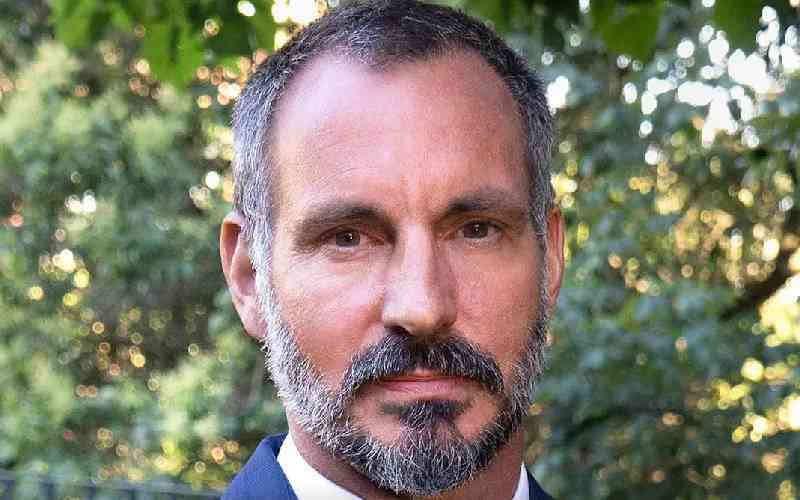Adenah Bayoh’s grandmother was an entrepreneur in Liberia—she owned a restaurant, real estate, a farm, and a bakery. As a child, Bayoh followed her around the local marketplace every Saturday morning, meeting women from nearby villages and selling their goods. She carried bread baskets, cleverly lowering the price at the end of the day to make sales—a young business mogul in the making.
At 13, her life was turned upside down when civil war broke out across Liberia. In the middle of the night, Bayoh, her grandmother, and her cousins fled to Sierra Leone, walking hundreds of miles to a refugee camp.
By the time Bayoh joined her parents in the U.S., she felt seasoned, as if she had grown up overnight by force. She immersed herself in the culture, finding support in her New Jersey community. Although she couldn’t read, her English teacher met her before school every morning to tutor her, helping Bayoh graduate seventh in her high school class.
“Experiencing the horrors of war as a child allowed me to understand that it would take me half of what it took to survive in Africa to survive here in the States,” Bayoh says. “So I immersed myself in the community and culture. The generosity of the people around me is why I stand here today.”
She got her start in the food service industry working at McDonald’s as a teenager. Over a decade later, at 27, she became one of the youngest IHOP franchisees in the country. Over time, she noticed a lack of food options for her community.
“My community is predominantly African American, and they would ask me all the time where my fish and grits were,” Bayoh says. “They wanted to support me, but they also wanted soul food … I took it upon myself to start selling these items, but I had to draw back because it went against the corporate system in place at the time.”
After scaling back her menu, Bayoh went into her office and wrote “Cornbread” on her whiteboard. She realized she wanted to start doing things her way—she already knew how to run a successful restaurant, so why not give it a shot?

“I wanted to open a concept that paid homage to the culture of Black people and talk to the testament of what soul food is. I wanted to honor my ancestors for coming up with these creative, amazing recipes out of necessity,” Bayoh adds. “Soul food is the gathering of families. It’s the joy that happens when communities come together.”
Bayoh turned her farm-to-soul, Southern-inspired concept into a reality in 2017. The first location was a smash hit in Maplewood, New Jersey, and has since grown to four locations in the tri-state area, with two more under development.
“Whether we’re hiring formerly incarcerated people or helping residents in shelters, it is very important to me that Cornbread is a part of the community story wherever we go.”
Cornbread menu highlights include chicken and waffles, a fried catfish po’boy, and, of course, made-from-scratch cornbread. Fried chicken and fish meals can be paired with comfort staples like collard greens, yams, black-eyed peas, and baked mac and cheese. A partnership with Elzadie “Zadie” Smith helped bring these beloved recipes to life.
As a community-centric brand, giving back is non-negotiable. One of Bayoh’s most impactful moments included hosting a Thanksgiving dinner at a local YMCA shelter, providing meals, children’s gifts, and a holiday party for residents who were fleeing domestic violence or struggling with homelessness.
“Whether we’re hiring formerly incarcerated people or helping residents in shelters, it is very important to me that Cornbread is a part of the community story wherever we go,” Bayoh says.

She also makes it a point to help create generational wealth and Black growth through her businesses. All of her general managers are women, providing them with the space to thrive and hopefully become business owners of their own—because Bayoh knows the struggle all too well.
“When I opened my first IHOP, seven banks turned me down, but I didn’t give up,” Bayoh adds. “We need to have funding and capital readily available for minority women entrepreneurs. They are hyper-scrutinized, and often, these lenders are looking for a reason to say no. I think we have a great opportunity to change that by investing in people and having faith in the first steps of their journey.”
Bayoh’s goal is to continue developing Cornbread into a national brand, accelerating growth through franchising in major cities before expanding nationwide. She hopes to serve as a beacon of inspiration for future entrepreneurs, encouraging them to have an “unshakable belief within themselves and the audacity to dream big.”
“Here is a girl who came to the U.S. at age 13, couldn’t read, and fought her way through the education system to get a college degree. Here’s a girl who started in real estate, lost everything, found her way through restaurants, and is now growing her own brand,” she says.
“Here’s a girl who has fallen many, many times and has faced so many obstacles but refused to quit,” Bayoh continues. “I want this story to resonate with someone who feels like giving up … because anything is possible if I’m standing here today despite generational limitations and trauma. There is no substitution for hard work … but when you want something badly, understand that the universe has got you, and you will prevail.”










